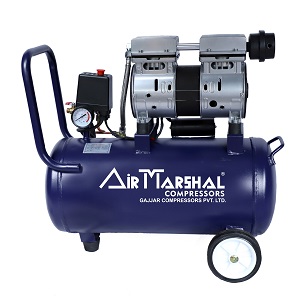Welcome to the
world of air compressors! we will take a deep dive into the different types of air
compressors shop available in the market. Whether you're a enthusiast or a
professional looking for the right compressor, this guide will help you
understand the various options and make an informed decision. So, let's get
started!
Types
of Compressors
Reciprocating
Compressors
Reciprocating
compressors are widely used in various industries and applications. They work
by using a piston to compress the air and deliver it at high pressure. These
compressors are available in both single-stage and two-stage configurations,
offering different pressure ranges and capacities. Reciprocating compressors
are suitable for small to medium-scale operations and are often used in
workshops, automotive repair centers, and construction sites.
Screw
compressors are known for their high efficiency and continuous operation. They
utilize two helical rotors to compress the air, making them ideal for
heavy-duty applications. These compressors are commonly found in manufacturing
plants, large-scale construction projects, and industrial facilities. Rotary
screw compressors provide a constant supply of compressed air and are known for
their low maintenance requirements.
Air
Compressors
Air compressors
are widely used in industries that require large volumes of compressed air.
They use high-speed impellers to accelerate the air, which is then diffused to
generate high pressure. Air compressors are known for their reliability,
efficiency, and ability to handle varying demand. They are commonly found in
power plants, oil refineries, and chemical processing facilities.
Choosing
the Right Air Compressor Shop
When it comes to
selecting a compressor shop, there are a few essential factors to consider.
Let's explore them in detail:
Assessing
Your Needs
Before you start
searching for a compressor shop, it's crucial to assess your specific
requirements. Consider factors such as the type of application, required
airflow, pressure range, and power source. Understanding your needs will help
you narrow down the options and find a compressor that meets your requirements.
Researching
Reliable Manufacturer and Supplier
To ensure a
quality purchase, research and identify reputable air compressor suppliers.
Look for shops with a proven track record, positive customer reviews, and a
wide range of products. Reliable suppliers will offer comprehensive warranties,
excellent customer support, and genuine spare parts.
Evaluating
Product Quality
When purchasing a air compressor, quality is paramount. Check if the shop offers products from
well-known brands with a reputation for reliability and durability. Quality
compressors not only perform better but also have a longer lifespan, resulting
in cost savings in the long run.
Air Compressor
Shop Services
Apart from
selling compressors, reputable compressor shops provide a range of valuable
services. Let's explore some of them:
Sales
and Consultation
Experienced sales
personnel can guide you through the selection process and help you choose the
right compressor based on your needs. They will consider factors such as
required airflow, pressure, duty cycle, and budget to recommend the best
options available.
Installation
and Setup
Air Compressor
installation and setup require technical expertise. Many air compressor shops
offer professional installation services to ensure proper functioning and safe
operation of the equipment. They will assist in setting up the compressor,
connecting it to the necessary power source, and integrating it with your
existing system.
Maintenance
and Repairs
Regular
maintenance is vital for the optimal performance of your compressor. Compressor
shops often provide maintenance services, including scheduled inspections,
filter changes, oil checks, and overall system performance evaluation. In case
of any issues or breakdowns, they can also handle repairs efficiently.
Air Compressor Accessories and Parts
To enhance the
performance and efficiency of your compressor, various accessories and parts
are available. Some commonly used ones include:
Air
Filters and Dryers
Clean and dry air
is essential for the longevity of your compressor and the quality of the
output. Compressor shops offer a range of air filters and dryers that remove
moisture, dirt, and contaminants from the compressed air.
Pressure
Regulators and Control Systems
Pressure
regulators and control systems ensure that the compressed air is delivered at
the desired pressure levels. These accessories help maintain consistent
performance and protect downstream equipment from excessive pressure.
Compressor
Lubricants
Proper
lubrication is crucial for the smooth operation of your compressor. Compressor
shops supply high-quality lubricants designed specifically for different types
of compressors. Regular oil changes and lubrication contribute to improved
efficiency and increased lifespan.
Tips
for Maintaining Your Compressor
To ensure the
longevity and efficient operation of your compressor, follow these maintenance
tips:
Regular
Inspection and Cleaning
Periodically
inspect your compressor for any signs of damage, leaks, or unusual noises.
Clean the exterior and ensure proper ventilation to prevent overheating.
Monitoring
Oil Levels and Air Filters
Check the oil
levels regularly and change them as recommended by the manufacturer. Similarly,
inspect and clean the air filters to maintain optimal airflow and prevent
clogging.
Proper
Storage and Safety Measures
If you need to
store the air compressor for an extended period, follow the manufacturer's
guidelines. Ensure the compressor is protected from dust, moisture, and extreme
temperatures. Additionally, adhere to safety protocols when operating the
compressor, including wearing appropriate protective gear and following proper
shutdown procedures.
 |
| Gajjar Compressors |
In this comprehensive guide, we have explored the various types of air compressors available and the factors to consider when choosing a compressor shop. Remember to assess your needs, research reliable suppliers, and evaluate product quality before making a purchase. Additionally, take advantage of the services provided by compressor shops, such as sales consultation, installation, and maintenance. By following proper maintenance practices and utilizing the right accessories, you can ensure the longevity and optimal performance of your air compressor.





